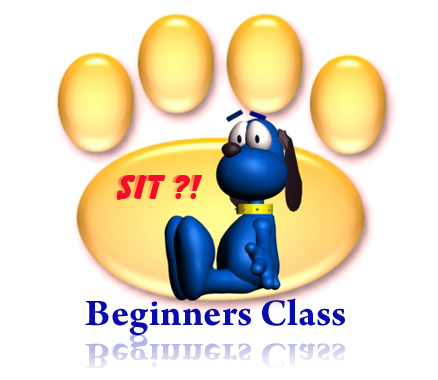Dog Training Classes & Behaviour Consultations 
This is our introductory dog training class. This course is an ideal way of starting your dogs' education and gives you the owner, the skills you`ll need to continue training long after you complete the course.The classes cover the basics - Sit, Down, Grooming & Handling, Walking nicely on loose leadRecall, Problem solving - House trainingSeparation Anxiety, Chewing, StressThe main objective of this course is to improve the relationship with your dog and to help turn them into an acceptable member of society.
Kanine Kapers intention is not to turn out the next Crufts obedience champion.
We simply want to train dogs that will be good family pets and a joy for their owners to live with - but most importantly safe with all members of the community.
Beginners Class F.A.Q.
Note: The first night of each beginners course is for humans only and allows us to answer all your questions, hand out our worksheets and discuss any behaviour problems your dogs may have and the methods we use to help.Q. What equipment will I need for the class?A. Well fitting collar - Flat broad leather, fabric or half check.A comfortable collar is essential for your dog to work in. One that catches or pulls his hair will make him pull against you, as he will associate you with the discomfort he is feeling. The broader the collar the better, as it will spread the pressure.No choke . check chains - they cause back and neck injuries.
Lead - No flexi leads - a webbing or leather lead is kinder to your hands. Chain leads can be uncomfortable to use but if you have a lead chewer then needs must.Rewards - These can come in a variety of forms :-
A favourite titbit
A special toyKind wordsPleasant handlingFeed your dog only half their normal dinner prior to coming to the class as he will work better for food rewards and no one works well on a full stomach or an empty one. Keep the titbits small and easy to handle.Toys - one that is easy to get back from your dog, a ragger or ball on a rope work well.Kind words - eventually it is praise that we want your dog to work for, so use your voice alongside your food or toy reward.
Q. My dog doesn't like being around other dogs, can he still come to class?
A. Yes and NO - we need to find out why he may have issues with other dogs, many of which tend to be fear based. We would rather not put him straight into his worst nightmare i.e. a class of seven other unknown dogs. If you do have concerns about your dogs' reaction then please speak to us prior to booking a place. If we think that a class is not suitable at present then we will work with you to resolve the problem using practical one to one sessions and/or behavioural consultations depending on the type of problem you may be experiencing.
|